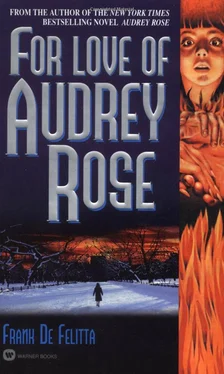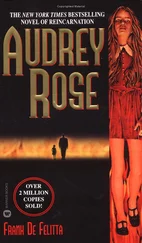“Room 507, please,” he said.
Janice nodded, still confused by suddenly being in India, but now reassured by the Western efficiency, even impersonality, of the Varanasi Palace.
The old man, who also wore a red coat, heaved the suitcase onto a back already bent with age. Strangely, at the elevator, he only instructed the operator, then proceeded to walk the entire five floors up to her room. Puzzled, Janice waited for him. At length he arrived, breathing hard and sweating. His hands were permanently curled by a life of hard labor.
He opened the door to room 507. Janice walked in. It was cool. The walls were white. Fresh flowers bloomed from glass bowls. The bedspread was white, patterned by its weave of fresh cotton. The bathroom was clean. There was nothing that indicated she was in India except the bent porter at the door. She gave him what she thought was a fair tip. He stared at her in mixed gratitude and defiant, almost hostile pride. For a second, she thought he would refuse it. Then he nodded, blinked his rheumy yellow eyes, and departed, closing the door.
Janice sat down on the bed. It had silent springs, firm yet resilient. Strange, confused emotions swirled inside her. She felt like laughing. She felt like crying. She felt like running around the block, overflowing with nervous energy.
Janice called down to the desk, found the correct time, and adjusted her watch. It was only 12:30 in the afternoon in Benares.
She undressed, stepped under the shower, and found the water hot and delicious in its sting. She shampooed her hair twice, rinsed thoroughly, and combed her hair down. In the mirror, she looked into her own eyes and could not decipher the look she found in them. Was she courageous or insane? She dressed carefully in beige slacks, white blouse, and sandals. The afternoon was hazy, the clouds spread evenly over the serrated skyline of high-rise apartments and slums. Down at the desk she composed an express letter to Bill.
Dearest. Am searching. Will find help for both of us. Trust and believe. All my love. Janice.
She addressed it in care of Dr. Geddes, asking him to give it to Bill or withhold it, as he thought best. The stationery had the hotel’s address if Dr. Geddes needed to contact her.
A taxi took her quickly from the hotel, out of the residential compound, and back into the morass of animals, bauble sellers, brass workers, fortune-tellers, precariously balanced fruit stands, pilgrims of various castes — some nearly naked, many with ash smeared across their aged breasts — and up a long hill, where Janice could see the breathtaking spectacle of nearly two thousand spires, domes, minarets, and towers rising like a vast rock crystal garden, glittering in mosaic brilliance against a pure blue sky. Now she could see the great brown river, the Ganges, rolling imperturbably toward the Bay of Bengal. The shores were hidden by clusters of shops and crumbling houses, but beyond was that same muddy wasteland of the great, hot flood plain.
The taxi swerved around a corner and stopped. In front of her was an imposing white edifice, its top story on supports, creating the impression of a vast fortress. A sign read, in three languages, Hindu University.
The entrance to the administration hall led to a series of foyers, each of which led to complexes of reception and office space. Janice walked slowly through the vast, black-tiled area, where the light came in through tall, narrow windows high over her head, and her heart was beating so violently she thought it would echo off the stone.
A steel-framed door led to a narrow corridor. File cabinets made the corridor even more narrow. Janice walked down through the dusty channel and emerged at a second door that opened onto a large typing pool. The typists were all women, with brightly colored saris, and they typed with manic efficiency.
Janice leaned against a marble-topped counter and looked around. The women clattered away, some at electric machines, others at older, upright models. Finally, a young girl with jet black eyes and hair, and a subtle mustache over her full red lips, sauntered to the counter. She said nothing.
“I’m looking for Sesh Mehrotra,” Janice said. “Here. Let me write it down.” She spelled out the name. The girl stared blankly at it.
“He is a student here?” the girl asked.
“I don’t know. He might be an instructor.”
The girl walked to a horizontal steel bin. Her bracelets jangled as her dark arms riffled quickly among the entries there. From time to time, she pulled out a file, checked it against the name, and slid the file back into its holder. At last she copied something down on the slip of paper, and came to the counter. On the paper she had written: Department of Philosophy.
It was a small office, dominated by a single desk with a middle-aged woman, her floral print sari and brass bangles glimmering like a fallen chandelier. Behind was the landscape of Benares, leading down to the warm brown Ganges. The receptionist had white hair twined into the black, and under her dense black eyebrows her eyes were soft and brown. She waited for Janice to speak.
“I’m looking for Mr. Sesh Mehrotra,” Janice said softly.
With a subtle nod, the woman disappeared toward the office in the rear. Janice waited. The receptionist returned brandishing a piece of paper. She handed it to Janice.
“This street is in Benares?” Janice asked.
“Why don’t you just telephone?” she offered, indicating the desk phone.
Trembling, Janice’s fingers traced out the number inscribed on the paper. There was a muted storm of static, a buzz and three clicks, and then a voice answered. It sounded old, neither male nor female, and it was asking a question.
“I’m sorry,” Janice said, trying to control her voice, “do you speak English?”
Quizzically, the voice responded by repeating its question.
“English,” Janice repeated, louder. “Do you speak English?”
Now the voice became irritated, in the manner of nearly deaf persons, and for the third time it shouted back its question. Janice looked around helplessly. The receptionist took the receiver from her hand. A few quick words were exchanged, and the receptionist hung up.
“Mr. Mehrotra has several jobs,” the receptionist explained, pulling out a small map from a drawer. “Most likely he is at his position here. ”
“Thank you — thank you.”
Elated, Janice carefully folded the map and put it into her handbag. She was so happy, she almost did not know where she was going. At a small shop — more a three-sided booth than a shop — she bought a more durable blouse and a pair of the cheap wicker sandals that all the women of Benares wore. She hailed a taxi and showed the map to the driver, who nodded and sped off.
At last the taxi found the street. It was slimy with cow dung, wet, squashed, and mingled with dropped fruit, long mashed into a single green slime on the stones. The street was ancient, the walls leaned over it, and shadows of buyers and sellers mingled into a single ever-changing black shape against the ground. Janice paid the fare, and walked slowly, as though feeling her way. The street intersection circled on the map turned out to be the junction of two alleys, dense with brassware, portraits of religious gurus, and men who stared out at her with vacant black eyes.
Janice approached a shop. A clerk labored over a huge ledger at one side of his shelves of brass. He looked angry, as though he would rather be almost anywhere else. He looked too educated, out of place. With a burst of energy, he began computing the long columns of entries.
“Mr. Mehrotra,” Janice said gently.
He looked up. His face was round, and he wore black-rimmed glasses. He needed a shave. His black hair was curly, and his eyes small and nearsighted. He wore a white shirt and white pantaloons, sandals, and three gold rings. He seemed glad to be interrupted.
Читать дальше












